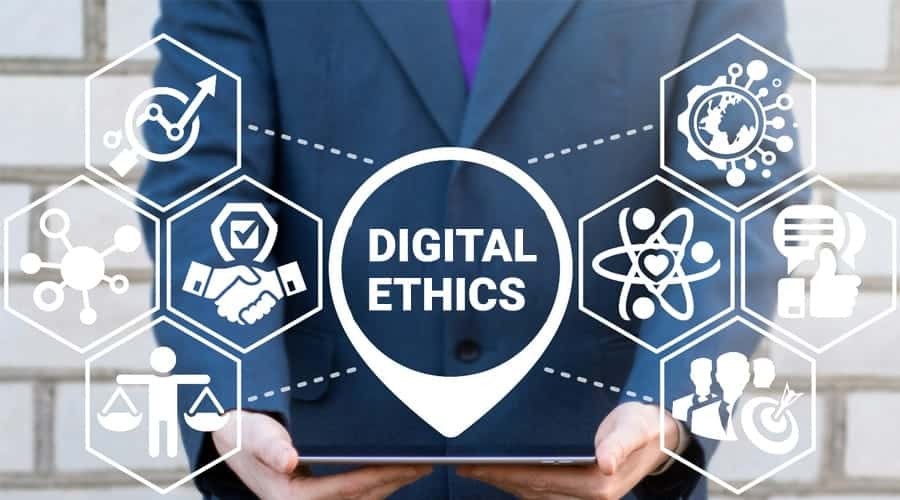In today’s hyper-connected world, digital technology has transformed how we live, work, and interact. However, this rapid advancement brings numerous ethical dilemmas that challenge our moral frameworks. From data privacy to artificial intelligence (AI) bias, society must address these issues to ensure a fair and responsible digital future. This article explores key ethical dilemmas in digital life, their implications, and potential solutions.
A. Data Privacy and Surveillance
One of the most pressing ethical concerns in digital life is the balance between convenience and privacy. Companies collect vast amounts of personal data, often without explicit consent, raising questions about user rights and corporate responsibility.
1. The Rise of Data Exploitation
Many tech giants monetize user data through targeted advertising, leading to concerns about exploitation. While personalized ads improve marketing efficiency, they also risk manipulating consumer behavior.
2. Government Surveillance vs. Personal Freedom
Governments use digital surveillance for security, but excessive monitoring can infringe on civil liberties. The ethical dilemma lies in finding a balance between national safety and individual privacy.
3. Solutions for Ethical Data Use
-
Transparency: Companies should clearly disclose data collection practices.
-
User Control: Individuals must have the right to opt out of data tracking.
-
Regulation: Stronger laws, like GDPR, can enforce ethical data handling.
B. Artificial Intelligence and Bias
AI systems are increasingly integrated into decision-making processes, but they often reflect human biases, leading to unfair outcomes.
1. Algorithmic Discrimination
AI used in hiring, lending, and law enforcement may discriminate based on race, gender, or socioeconomic status due to biased training data.
2. Accountability in AI Decisions
When AI makes mistakes, determining responsibility is difficult. Should the blame fall on developers, companies, or the algorithms themselves?
3. Ethical AI Development
-
Diverse Data Sets: Training AI on inclusive data reduces bias.
-
Audit Mechanisms: Regular checks can identify and correct biases.
-
Human Oversight: Critical decisions should involve human judgment.
C. Social Media and Mental Health
Social media platforms shape public opinion and personal well-being, but their addictive nature raises ethical concerns.
1. The Impact of Algorithmic Addiction
Platforms use engagement-driven algorithms to keep users hooked, contributing to anxiety, depression, and reduced productivity.
2. Spread of Misinformation
Fake news and conspiracy theories thrive on social media, influencing elections and public health decisions.
3. Ethical Social Media Practices
-
Content Moderation: Platforms must combat harmful misinformation.
-
Digital Well-being Tools: Features like screen time limits promote healthier usage.
-
Transparent Algorithms: Users should understand how content is curated.
D. Workplace Automation and Job Displacement
Automation improves efficiency but threatens job security, creating ethical dilemmas about economic fairness.
1. The Threat to Traditional Jobs
Robots and AI may replace millions of jobs, disproportionately affecting low-skilled workers.
2. Ethical Responsibility of Employers
Companies must consider retraining programs and fair transition policies for displaced employees.
3. Policy Solutions
-
Universal Basic Income (UBI): Provides financial stability in automated economies.
-
Reskilling Initiatives: Governments and corporations should invest in workforce education.
E. Digital Divide and Inequality
Not everyone has equal access to technology, deepening societal inequalities.
1. The Gap in Internet Access
Rural and low-income communities often lack reliable internet, limiting education and job opportunities.
2. Ethical Tech Inclusion
-
Affordable Connectivity: Governments should subsidize internet access.
-
Digital Literacy Programs: Training ensures everyone can benefit from technology.
Conclusion
The ethical dilemmas of digital life require urgent attention from individuals, corporations, and policymakers. By prioritizing transparency, fairness, and inclusivity, we can build a digital world that benefits all.














